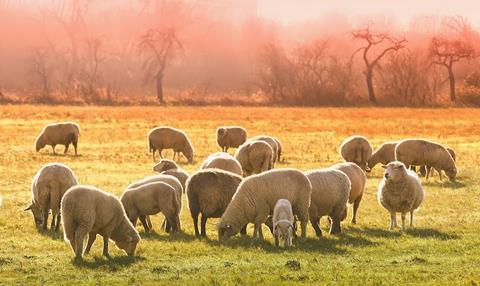The EU, UK, USA and 21 other members of the World Trade Organisation (WTO) have committed to open and predictable trade in agricultural and food products during the current coronavirus crisis.

Co-signatories of the joint statement pledge to ensure the well-functioning of global agriculture and agri-food supply chains and to avoid measures with potential negative impact on food security, nutrition and the health of other members of the organisation and their populations.
Part of the joint statement read: “As members take measures to address the pandemic, it is imperative that these measures do not adversely affect trade in agriculture and agri-food products which would ultimately have negative impacts on the food security, nutrition and health of members and their populations.
“Collectively, we account for 63% of global exports of agriculture and agri-food products and 55% of global imports of agriculture and agri-food products. We underscore the importance of maintaining agriculture supply chains and preserving the ability of members to import agriculture and agri-food products to meet their domestic needs.”
In order to cope with the demand for meat products during the pandemic, ABP Food Group, which supplies beef for Asda and Sainsbury’s, imported 400 tonnes of Polish beef for the supermarkets to sell. This move was met with staunch criticism from the National Farmers Union (NFU) and from Northern Ireland’s Committee for Agriculture, Environment and Rural Affairs.
This agreement will now look to provide further clarity in any trade and import deals for agriculture and food products, including meat.
“To help ensure well-functioning global agriculture and agri-food supply chains in response to this crisis we therefore are committed to ensure that supply chains remain open and connected so that international markets can continue to function in supporting the movement of agricultural products and agriculture inputs..."
The statement continues: “The application of export restrictions and similar trade restrictive measures on agriculture and agri-food products create an unpredictable trading environment that would adversely affect food availability and result in price spikes, increased price volatility, and leads to shortages of important food products.
“The adoption by many members of successive export restrictive measures to secure their own food security would lead to a widespread food insecurity crisis due to the disruption in global agricultural trade supply chains. It is also important to avoid food loss and waste caused by supply chain disruptions, which could exacerbate food security risks and economic loss. In addition, supply chains for key agriculture inputs must remain open to help ensure existing production levels are maintained.
“To help ensure well-functioning global agriculture and agri-food supply chains in response to this crisis we therefore are committed to ensure that supply chains remain open and connected so that international markets can continue to function in supporting the movement of agricultural products and agriculture inputs, which plays an instrumental role in avoiding food shortages and ensuring global food security.
The WTO and its members also pledged to take other members to protect and support international trade, such as:
- To exercise restraint in establishing domestic food stocks of agricultural products that are traditionally exported so as to avoid disruptions or distortions in international trade.
- Not to impose agriculture export restrictions and refrain from implementing unjustified trade barriers on agriculture and agri-food products and key agricultural production inputs.
- That emergency measures related to agriculture and agri-food products designed to tackle COVID-19 must be targeted, proportionate, transparent, and temporary, and not create unnecessary barriers to trade or disruption to global supply chains for agriculture and agrifood products.
- To inform the WTO as soon as practicable of any trade related COVID-19 measures affecting agriculture and agri-food products, including providing scientific evidence in accordance with WTO agreements if necessary, to ensure transparency and predictability.
The full statement from the WTO members can be read here.
This story was originally published on a previous version of the Meat Management website and so there may be some missing images and formatting issues.















